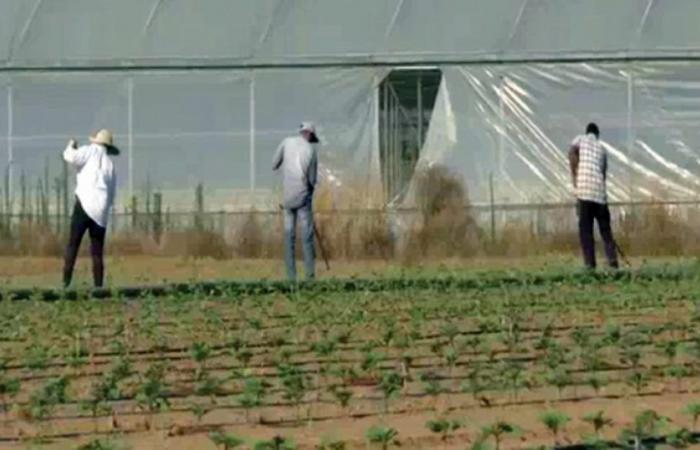In the city there is no talk of anything else. Anger, dismay, compassion, shame, disgust are the most common sensations. But don’t start, many are quick to say, Latin It has nothing to do with why we dissociate ourselves from these scoundrels. And how do you not do it? It’s the day after the death of Satnam Singh, who came here to look for a job: he was picking strawberries in Borgo Santa Maria for 4 euros an hour, died and in the most inhumane way possible. A machine amputated his arm and since he didn’t have a contract, neither INAIL nor the hospital existed for him; his owner thought it best to resolve this by placing the severed limb in a fruit box and dumping everything, like rubbish in front of his house in the Borgo.
Satnam Singh was a slave who collected and planted fruit and vegetables, fertilized by the sweat and blood of those who work them. Every time a tragedy happens – and it happens often – we find ourselves doing the same thing over and over again painful considerations. To want to change a future that always remains immobile, until the next event. Will we ever be able to take a step forward? To change something you need decisive and strong political action against the bosses, he always repeats Marco Omizzolo.
Already! Marco Omizzolo, sociologist and author of national and international essays and research on the exploitation of foreign workers in agriculture, has been fighting for the rights of these invisible workers for years. I’m looking for it. To do his doctoral thesis, years ago, he decided to learn and study the large Indian community of the Agro Pontino. He has been seeing them for years and has earned their trust. He was the first Italian to take care of them and help them. A safe person to rely on for everything. He is saddened and tells me that this is not the first case and it won’t be the last. Unfortunately, this is the dramatic expression of a system that produces millions of profits through exploitation on the one hand and the death of workers on the other. This time it was Satnam’s turn. Dozens and dozens of other people – including Italians – in this country have decided to build part of their economy and their business on the bent backs of thousands of workers in the countryside.
Satnam was not the victim of a corporal but of a master who managed him in a criminal manner.
There are many Indians who work in our province. They arrived in Italy since the 1980s. They come mainly from Punjab and they are all Sikhs. It is not possible to estimate how many there are. Almost no one has regular contracts and, to ensure fresh vegetables and fruit on the tables of Italians, they break their backs by enduring inhumane exploitation. They wake up at dawn and go to the greenhouses to work every morning. You meet them in droves in the narrow streets of the villages early in the morning and late at night. They go in the dark and return in the dark. I am invisible unfortunately even on the road: you have to be very careful because they pop out in front of you suddenly. For them, the bicycle represents the future and hope for change. They use it all the time. With or without headlights, with or without reflective jacket. For them it is important to get on the vehicle and reach those fields: every box, every strawberry, every melon, is for them a symbol of the future and of hope.
This is how Satnam saw his life. That morning he got up early as usual and rode his two-wheeler via della Speranzato get to the Lovato greenhouses. There his life ended, in the worst way possible, leaving his young wife in despair.
Damiano Colettaformer mayor of Latina, is indignant because he says that the projects put in place in recent years to highlight and combat enslavement have been of no avail. Without adequate and constant controls, without the certainty of punishment, the exploiters will continue to exploit the needs of the least of the least. He says: “I had left 4 million euros with Pnrr funding for the fight against all forms of discrimination, including gangmaster. I understand that perhaps half of them have been used and unfortunately they are also being reduced at government level.”
This tragedy takes us into the abyss of inhumanity. But perhaps there is still hope if, as the mayor of Latina says, she is receiving numerous messages from citizens who are shocked by what happened: “They want to support charitable initiatives in favor of Satnam Singh’s family. This means that the values of solidarity prevail in the community.” If there are people who, with concrete actions, want and can re-establish the right to life of those who have few rights, perhaps something could change?
The evening in which Satnam died, in the village of Gnif Gnaf, as it was previously called to remember the sinking of the boots in the swamp, the planned party went ahead as if nothing had happened. He ate, danced and sang until late at night in complete indifference. Perhaps it would have been more appropriate to remain silent, to allow thoughts to slow down and emotions to consolidate and strengthen. Yes, being silent to listen and better interpret the events that have happened, and to metabolize the pain of those who are suffering more than others at this moment. But most importantly, be silent to honor everyone, especially the invisible ones who live among us and who we continue to pretend not to see.






